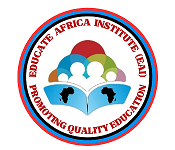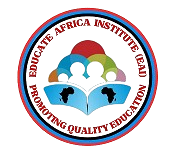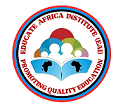EAI Research: 76% of Female Students Could Drop Out If Married Men Remain Faithful – William Boadi
The Silent Economy of Infidelity and Its Toll on Female Education in Sub-Saharan Africa
Research conducted by Educate Africa Institute (EAI) has revealed a controversial but urgent reality: if all married men in Sub-Saharan Africa decided today to remain faithful to their spouses, an estimated 76% of female students from Senior High School through to university could drop out due to the sudden loss of financial support derived from illicit relationships.
The Reality Behind the Numbers
For many young women, especially those from low-income households, completing Senior High School or pursuing a university degree is a costly dream. With limited access to scholarships and insufficient family support, some turn to financially capable “sponsors” often married men who cover rent, tuition fees, exam registration costs, and even daily stipends. This hidden support network functions like an informal scholarship system. However, unlike genuine educational support, it is rooted in moral compromise, broken homes, and deep social inequality.
Social and Psychological Implications
The consequences of this silent economy are far-reaching. Transactional relationships encourage young women to prioritize material gain over self-reliance and integrity, which creates long-term barriers to their personal growth and independence. At the same time, married men involved in such affairs often destabilize their own households, contributing significantly to the rising rates of divorce across the region.
Beyond the family, this culture of dependency weakens nation-building efforts. When students rely on morally questionable income sources, corruption becomes normalized, trust in leadership erodes, and social cohesion suffers. On a personal level, young women caught in these relationships frequently endure guilt, anxiety, and fear of exposure, which in turn undermines their academic performance and mental well-being.
From Infidelity to National Development
Marital infidelity is not merely a private matter; it has become a hidden driver of national instability. Infidelity remains one of the leading causes of marital breakdowns, leaving children to grow up in unstable family environments without the guidance of both parents. A society in which dishonesty is tolerated loses social capital, the very trust that holds communities together and propels national progress. Worse still, the generational impact is profound: girls grow up seeing infidelity as a legitimate survival strategy, while boys learn that dishonoring marriage vows is acceptable, perpetuating the cycle of instability.
The Way Forward: Concrete Solutions
To break this cycle, Africa must invest in legitimate educational opportunities. Expanding scholarships for girls from low-income families is essential, covering not only tuition but also living expenses that often push students into compromising situations. Schools and universities must also prioritize skills development and entrepreneurship training so that young women can sustain themselves financially and avoid dependency on exploitative relationships.
Equally important is mentorship. School-based programs where accomplished women mentor young girls can help them make ethical career and life decisions, instilling confidence and resilience. Community leaders both religious and traditional must speak openly about the social cost of transactional relationships, not only condemning them but also offering constructive alternatives. Finally, married men must be encouraged, through counseling and public awareness campaigns, to understand the wider damage their infidelity causes not just to their families, but to society and national development as a whole.

Africa cannot afford to build its future on broken marriages and moral shortcuts. The education of our daughters must not depend on hidden economies of infidelity but on integrity, hard work, and equitable opportunities. True nation-building begins when girls can achieve their potential through legitimate support systems and when society upholds justice, discipline, and honesty as the foundations of progress.
Signed,
William Boadi
Executive Director, Educate Africa Institute (EAI)
Educationist | Political Analyst | Social Worker
📞 +233 541 935 106



